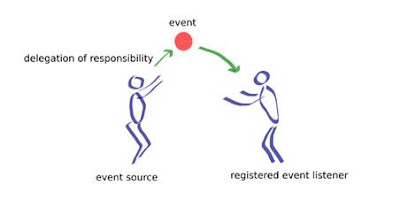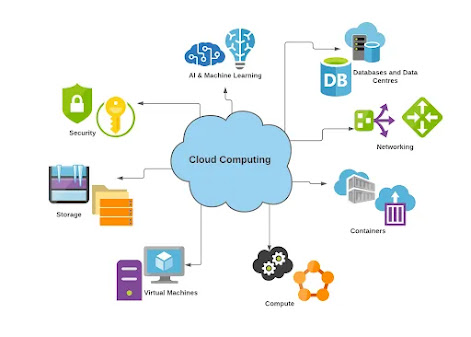CBSE Class 11 Computer Chapter 1 MCQ
BOARD: CBSE
CLASS: XI
SUBJECT: (Theory) C++
CHAPTER:
COMPUTER FUNDAMENTRAL
1.
Which of the following is not an Operating System?
a) Windows
b) Android
c) Microsoft
d) Unix
Correct
answer- c)
Explanation-
Microsoft is a company.
2.
What is the full form of BOSS.
a) Bharat
Operating System Support
b) Bharat
Operating System Solutions
c) Bharat
Organization System Server
d) Bharat
Operating System Solutions
Correct
answer- d)
Explanation-
BOSS stands for Bharat Operating System Solutions.
3.
The smallest unit for storage in computer is ____.
a) bit
b) byte
c) kb
d) gb
Correct
answer- a)
Explanation-
Bit can be either 0 or 1.
4.
Which of the following is fastest memory?
a) RAM
b) ROM
c) Cache
d) CPU
Correct
answer- c)
Explanation-
Cache is the fastest memory.
5.
The first adding machine invented by _____.
a) John Napier
b) Blaise Pascal
c) Gottfried
Leibnitz
d) Joseph
Jaquard
Correct
answer- b)
Explanation-
Blaise Pascal, a French mathematician invented an adding machine in 1642.
6.
The computers can be classified based on the technology being used are ___.
a) 1
b) 2
c) 3
d) 4
Correct
answer- c)
Explanation-
The computers can be classified based on the technology being used as: Digital,
Analog and Hybrid.
7.
Which of the following is fastest computer?
a) Micro
b) Mini
c) Mainframe
d) Super
Correct
answer- d)
Explanation-
Super computers are fastest and very expensive computers.
8.
Micro computers are also known as ____.
a) Private
Computers
b) Personal
Computers
c) New Computers
d) Hybrid
Computers
Correct
answer- b)
Explanation-
It is used to do a personal or individual work.
9.
____ refers to try the software before buying it.
a) Freeware
b) Opensource
c) Shareware
d) All of above
Correct
answer- c)
Explanation-
Sharewares give users a chance to try the software
before buying it.
10.
Which of the following is a Mobile Operating System?
a) Android
b) IOS
c) Symbian
d) All of the
above
Correct
answer- d)
Explanation-
11.
Computer understands ___ number system.
a) Octal
b) Decimal
c) Binary
d) Hexa
Correct
answer- c)
Explanation-
Computer is a machine and it work on 0 & 1.
12.
ENIAC Stands for ____.
a) Electronic
Numerical Input and Calculator
b) Electronic
Numerical Integrator and Computer
c) Electronic
Numerical Input and Computer
d) Electronic
Numerical Integrator and Calculator
Correct
answer- d)
Explanation-
ENIAC Stands for Electronic Numerical Integrator and Calculator.
13.
A _____ is a delicate glass device that can control and amplify electronic
signals.
a) Vacuum tube
b) Transistor
c) Capacitor
d) IC
Correct
answer- a)
Explanation-
The first generation computers used the concept of ‘stored program’ and were
characterized by vacuum tubes. A vacuum tube is a delicate glass device that
can control and amplify electronic signals.
14.
Which of the following is not a programming language?
a) FORTRAN
b) COBOL
c) Algol
d) Flowchart
Correct
answer- d)
Explanation-
A flowchart is a type of diagram that represents an algorithm, workflow or
process.
15.
Which of the following is a Secondary storage device?
a) RAM
b) ROM
c) Hard disk
d) CPU
Correct
answer- c)
Explanation-RAM
and ROM is primary storage device.
16.
Which of the following is not an input device?
a) Key Board
b) Monitor
c) Mouse
d) Scanner
Correct
answer- b)
Explanation-
Monitor is an output device.
17.
Which of the following is a type of bus?
a) Address
b) Data
c) Control
d) All of above
Correct
answer- d)
Explanation-
All three are bus. A bus is a transmission path (set of conducting wires) over which
data or information in the form of electric signals, is passed from one
component to another in a computer.
18.
The BIOS conducts a series of self diagnostic tests called ____.
a) Starting
Computer
b) Power On Self
Test
c) Power On
d) Switch On
Correct
answer- b)
Explanation-
POST tests include memory tests, configuring and starting video circuitry,
configuring the system’s hardware and checking other devices that help to
function the computer properly.
19.
Punch Card is invented by _____.
a) John Napier
b) Blaise Pascal
c) Gottfried
Leibnitz
d) Joseph
Jaquard
Correct
answer- d)
Explanation-.
Joseph Jaquard invented punch card in 1801.
20.
Which of the following is a function of OS?
a) Memory
Management
b) File
Management
c) Device
Management
d) All of the
above
Correct
answer- d)
Explanation-
Processor Management, Memory Management, File Management and Device Management
are functions of OS.
21.
____ scans the entire program and
translates it as a whole into machine code.
a) Compiler
b) Interpreter
c) Assembler
d) None of these
Correct
answer- a)
Explanation-
Compiler scans the entire program
and translates it as a whole into machine code.
22.
Reduction of the storage space
required for data by changing its format is known as ____.
a) Software
b) Memory
c) Compression
d) Virus
Correct
answer- c)
Explanation-
It is used to reduce the file size and for faster file transmission.
23.
A ____is a small program that can spread from one computer system to another
and cause interferences with computer operations.
a) software
b) virus
c) application
d) operating
system
Correct
answer- b)
Explanation-
A virus is a small program that can spread from one computer system to another
and cause interferences with computer operations.
24.
How many types of Booting process?
a) 0
b) 1
c) 2
d) 3
Correct
answer- c)
Explanation-
Booting Process is of two types – Warm and Cold
25.
Who is known as father of modern computers?
a) John Napier
b) Blaise Pascal
c) Charles
Babbage
d) Bill Gates
Correct
answer- c)
Explanation-
Difference Engine and Analytical Engine, both these great inventions earned him
the title of ‘Father of Modern Computers’.
26.
What you get after processing data?
a) File
b) Information
c) Output
d) None of above
Correct
answer- b)
Explanation-
After processing a data we get information. So information is known as
processed data.
27.
The time period for third generation’s computer is ____.
a) 1942-1955
b) 1955-1964
c) 1964-1975
d) 1975-1985
Correct
answer- c)
Explanation-
third generation’s computers are made up with IC.
28.
Prof Howard Aiken in collaboration with IBM constructed an electromechanical
computer named ____.
a) Pascal
b) UNIVAC
c) ENIAC
d) Mark 1
Correct
answer- d)
Explanation-
In 1944 Prof Howard Aiken in collaboration with IBM constructed an
electromechanical computer named Mark 1 which could multiply two 10 digit
numbers in 5 seconds.
29.
Who improve Pascal machine to perform multiplication and division as well.
a) Charles
Babbage
b) Gottfried
Leibnitz
c) Bill Gates
d) John Napier
Correct
answer- b)
Explanation-
In 1673 Gottfried Leibnitz, a German mathematician extended the capabilities of
the adding machine invented by Pascal to perform multiplication and division as
well.
30.
Who proposed the concept of a stored program in computer?
a) Dr. John Von
Neumann
b) Blaise Pascal
c) Charles
Babbage
d) Bill Gates
Correct
answer- a)
Explanation-
In 1945, Dr. John Von Neumann proposed the concept of a stored program
computer.



Comments
Post a Comment